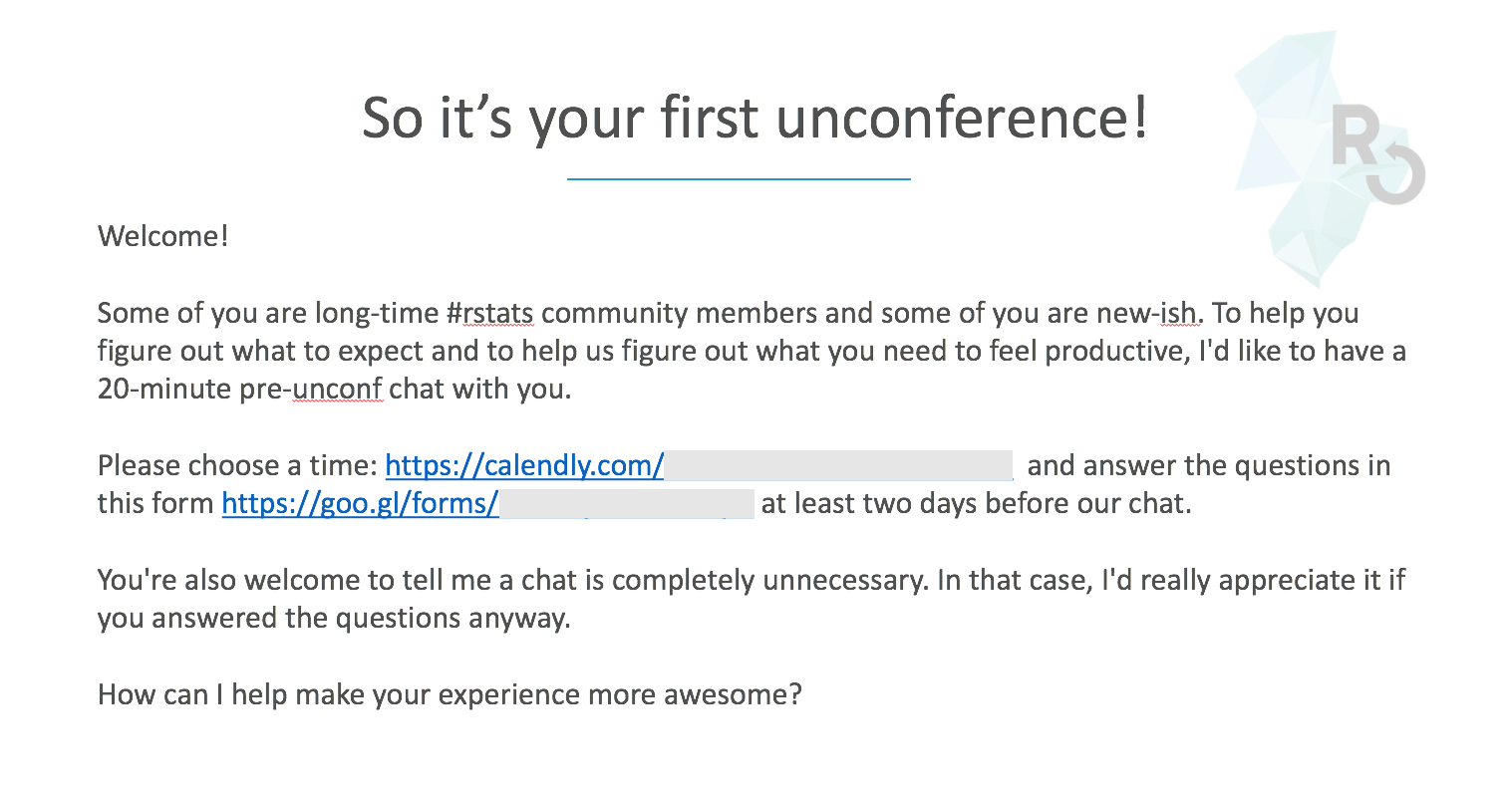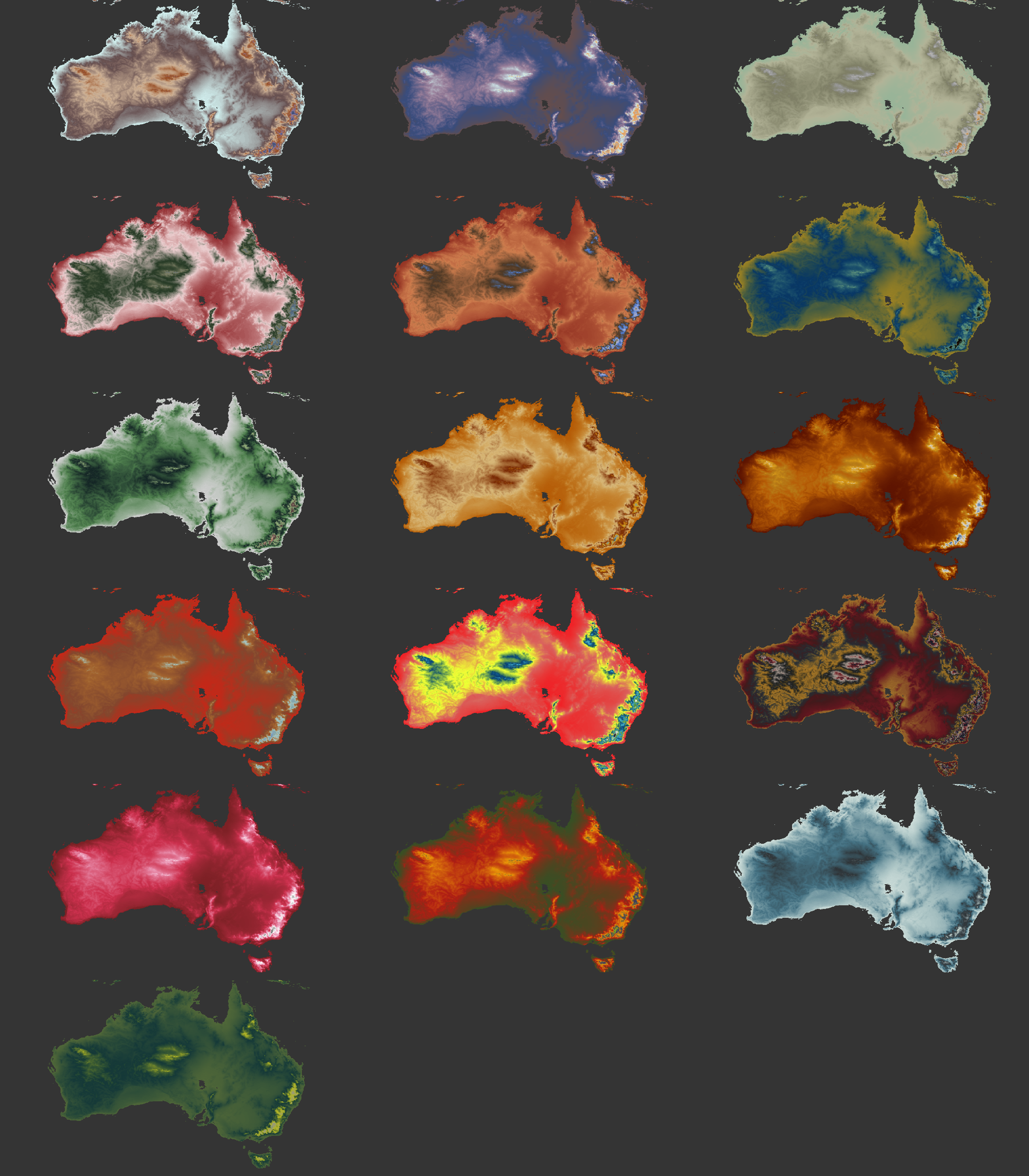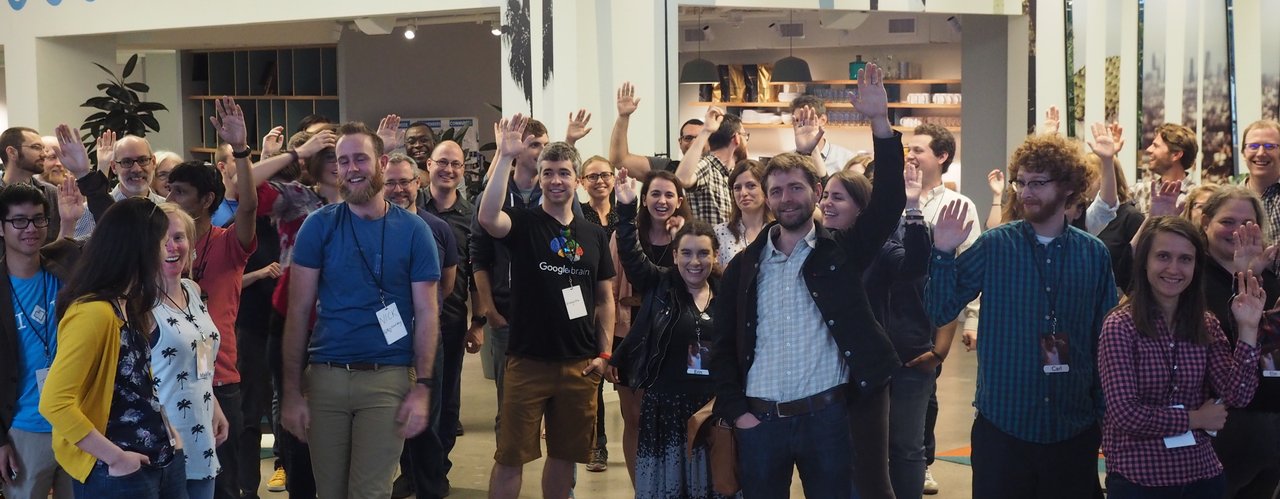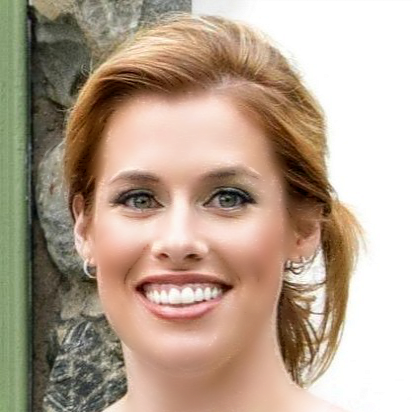
I’ve raved about the value of extending a personalized welcome to new community members and I recently shared six tips for running a successful hackathon-flavoured unconference. Building on these, I’d like to share the specific approach and (free!) tools I used to help prepare new rOpenSci community members to be productive at our unconference.







